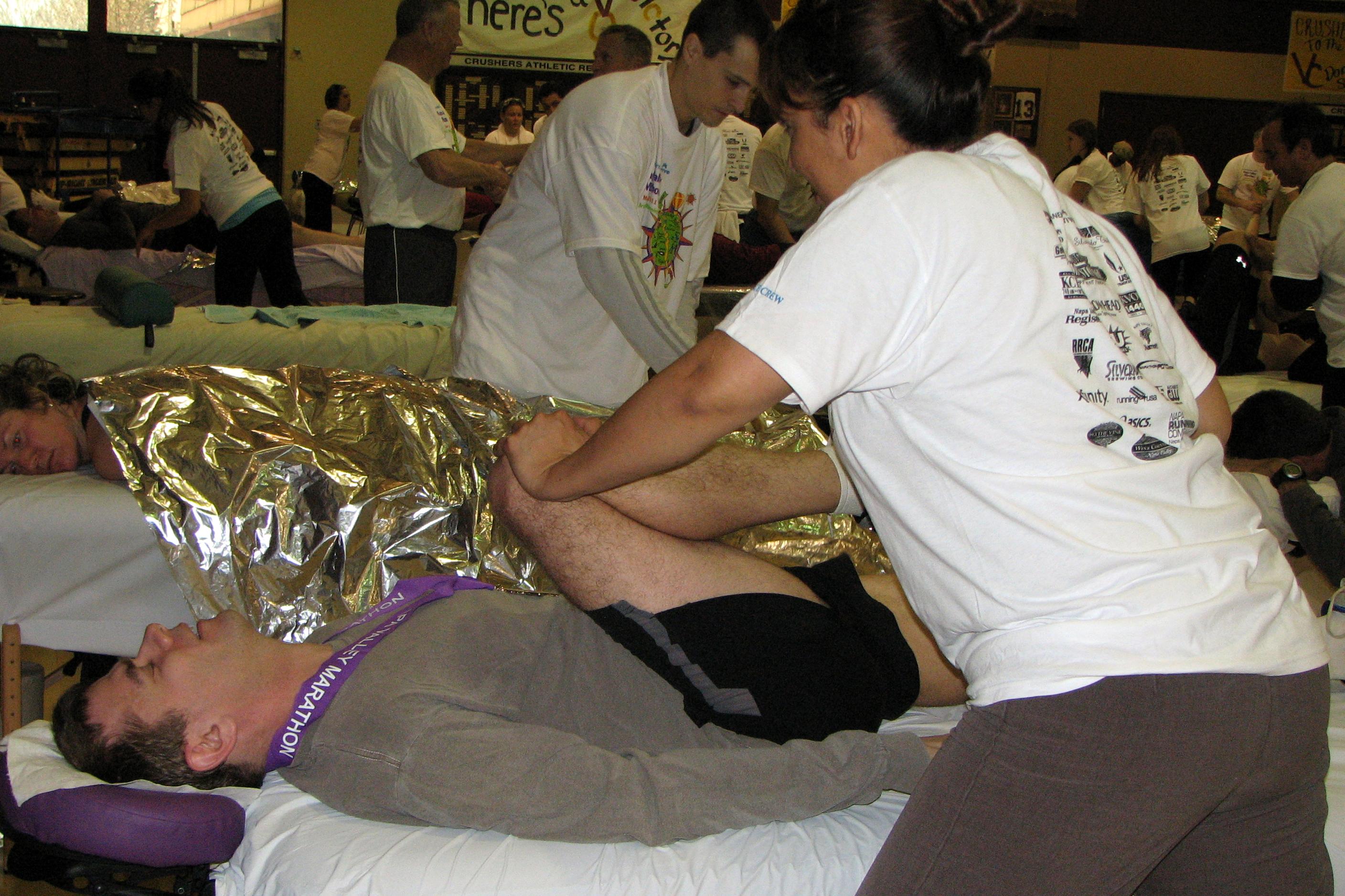Time for a  topic from the Healthy Matters mailbag. Today’s “Open Lines” show was a busy one, and as is the case for these shows, I leave many questions from listeners unanswered, or not fully answered. Mea culpa, Healthy Matters listeners! Miss the show today? You can always listen to the podcast at your leisure – in your pajamas, in the car, while out exercising. Anywhere you want. You’re so connected like that.
topic from the Healthy Matters mailbag. Today’s “Open Lines” show was a busy one, and as is the case for these shows, I leave many questions from listeners unanswered, or not fully answered. Mea culpa, Healthy Matters listeners! Miss the show today? You can always listen to the podcast at your leisure – in your pajamas, in the car, while out exercising. Anywhere you want. You’re so connected like that.
I’ve picked just one of today’s queries to highlight here.
Injecting goo into your knee
Here’s a text from today’s show (paraphrased a bit):
“I recently had injections of hyaluronic acid over 3 weeks. Now I’m having severe pains in knee and calf when walking. . . taking ibuprofen and resting and ice-packing . . . “
I can relate to this question since I’m no stranger to bone and knee pain. Witness the body work I needed after a marathon a few years back. I think I may actually be unconscious in this picture:

Alas, injections of hyaluronic acid or steroids or fairy dust or salt water or anything else aren’t going to help me. None of that is probably going to help the person who asked this question, either.
First, some definitions:
Osteoarthritis (OA) is the very common “wear-and-tear” type of joint disease (not to be confused with inflammatory joint problems, of which rheumatoid arthritis is the most familiar one). In OA, the cushioning cartilage wears down over time, leading to pain with movement of the joint.
(Don’t get me wrong, my problem in the picture above is not osteoarthritis. My problem is entirely self-inflicted but I’m going for the sympathy vote here).
Hyaluronic acid (HA) is the naturally occurring goo in your joints, which helps to lubricate the moving parts. Viscosupplementation is the practice of injecting a manufactured version of hyaluronic acid into the painful joint. By the  way, viscosupplementation, although the proper medical term, doesn’t sound nearly as cool as injecting goo, so I’m going with the latter term.
way, viscosupplementation, although the proper medical term, doesn’t sound nearly as cool as injecting goo, so I’m going with the latter term.
Some brands of injectable hyaluronic acids are made from bacteria, I think.
Other brands are made from rooster comb. Seriously. I’m not making that up. You are literally injecting chicken parts into your body with some of them.
So does it work?
In a word, no.
It has long been proposed that injecting a manufactured form of HA will aid in the pain of osteoarthritis. It does make some sense, I think. After all, lubrication is good for the pistons in my Mini Cooper. It worked for the Tin Man as well. And people have been trying it for years. A lot of years. To be fair, many people do seem to report some relief from it. If it is going to work at all, the relief should be expected to be delayed (a few weeks after the injection) but may last for many months. And you can find some fairly respectable Internet sites that discuss it as a viable therapy.
The problem is that there is no convincing evidence that it has any significant clinical benefit. This is where medical science comes in. Research has been done (lots of studies), and it is to the science that we must turn. Here’s the no-nonsense clinical guideline from the American Academy of Orthopaedic Surgeons:
“We cannot recommend using hyaluronic acid for patients with symptomatic osteoarthritis of the knee. Strength of Recommendation: Strong“
You can read the whole guideline by clicking the link above – it is not exactly a page-turner but it is thorough and covers everything you want to know about knee arthritis. You can believe these guys from AAOS. The little teensy-weensy clinical benefit that may or may not be present from these injections just isn’t to be found. May as well inject sugar water as best we can tell.
So what does work for osteoarthritis?
A whole lot of us, doctors and patients alike, wish we had a cure, or just better treatments, for the many people who have joint pain. What we do have that has some scientific basis is what you might expect:
- Strengthening and exercise program to build up the support structures of the joint.
- Weight loss if overweight (BMI 25 or greater).
- Use NSAIDS (non-steroidal anti-inflammatory drugs) like ibuprofen and naproxen.
So for our texter who raised the question, you raise a really good topic and I hope you get some relief! Here’s my thoughts:
- First, make sure you have tried a good course of physical exercise, including strengthening exercises.
- Second, unless you have a contraindication to using them (and there are many – like heart failure, intestinal ulcers, kidney disease to name a few), then give the NSAIDS a try for a while.
- Maybe not surprisingly, acetaminophen (trade name Tylenol) has not been shown to help much.
- If your osteoarthritis is only mild to moderate (not severe), and you have received relief from the hyaluronic acid injections, then it may be something to consider for you (it does carry FDA-approval for what that is worth), but there is no evidence to support it and so I don’t recommend it for my patients.
- If your pain is severe, see an Orthopaedic Surgeon. Knee replacement does work for many people.
- What about the symptoms the texter is experiencing – the calf and knee pain? Well that could well be a side-effect of the injection itself. Nothing is risk-free, including these injections. Could be an infected knee (a serious problem which requires attention) or a fluid-collection or something else. I recommend going in for evaluation to rule these things out. I suggest an Orthopedic specialist or a Rheumatologist for that.
Thanks for listening to HealthyMatters and for checking out the blog!
Next week on the radio broadcast: Diabetes – the latest research on controlling your blood sugars.
